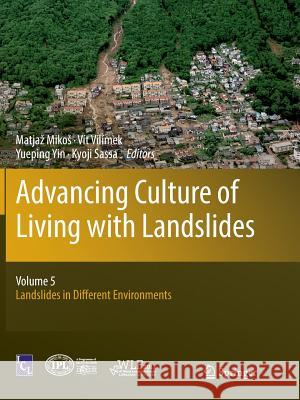Advancing Culture of Living with Landslides: Volume 5 Landslides in Different Environments » książka
topmenu
Advancing Culture of Living with Landslides: Volume 5 Landslides in Different Environments
ISBN-13: 9783030104146 / Angielski / Miękka / 2018 / 557 str.
Kategorie BISAC:
Wydawca:
Springer
Język:
Angielski
ISBN-13:
9783030104146
Rok wydania:
2018
Wydanie:
Softcover Repri
Ilość stron:
557
Waga:
1.28 kg
Wymiary:
27.94 x 20.96 x 2.97
Oprawa:
Miękka
Wolumenów:
01
Dodatkowe informacje:
Wydanie ilustrowane











